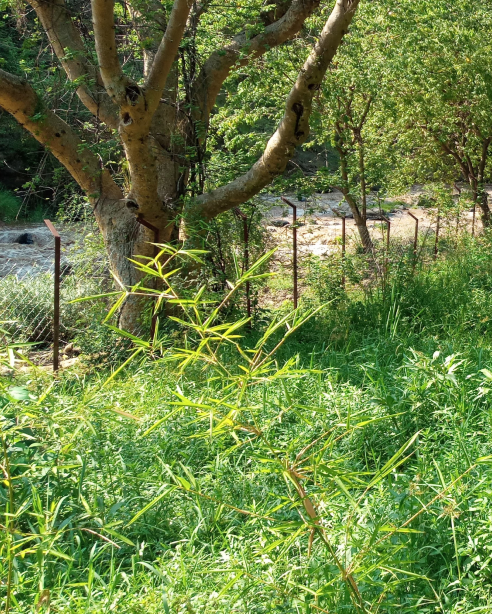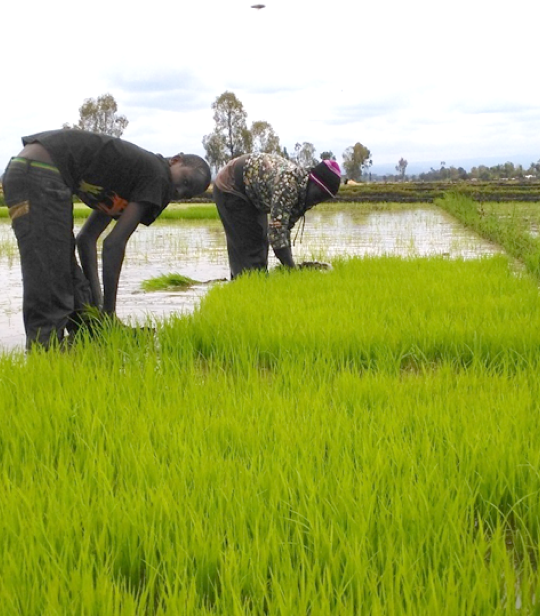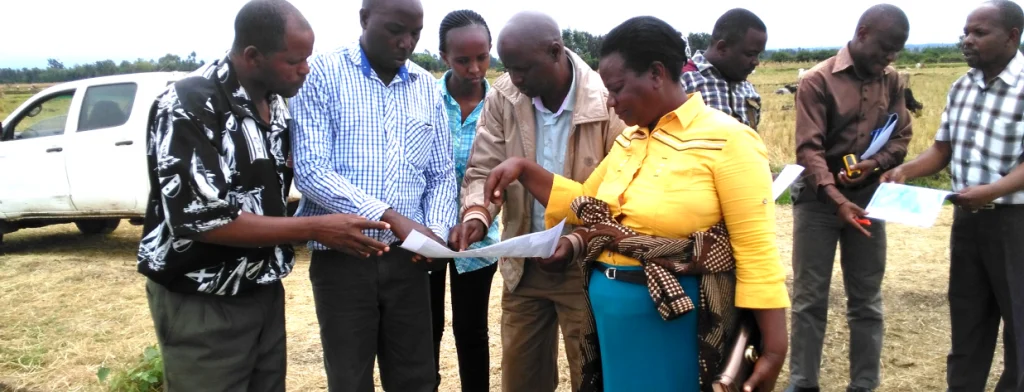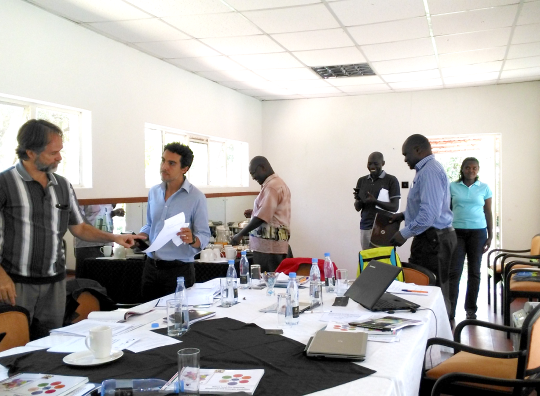Our Programs
Land Governance, Tenure Security & Investments (LTSI)

Access to land means the opportunity to earn a decent income and achieve food and nutrition security, and it can also pave the way for access to social benefits such as health care and education. Poor land governance and lack of secure access to land on the other hand, can disempower rural people and expose them to the combined threats of poverty, hunger and conflict. In addition, insecure land rights is the major source of social inequality (in both class and gender terms), instability and conflicts in Eastern Africa.
Land governance involves a procedure, policies, processes and institutions by which land, property and other natural resources are managed. This includes decisions on access to land, land rights, land use, and land development. Countries in eastern Africa just like most countries in the African continent and around the world have developed some policy frameworks on how to deal with the management of land. RECONCILE recognizes four functions that these policies and institutions should deal with as; land tenure, land value, land use, and land development.
Land tenure as a governance component is multi-dimensional and brings into play social, technical, economic, institutional, legal and political aspects of community organization. A well-defined and enforceable, whether in a formal court of law or through customary structures tenure system is critical to the security of rural livelihoods.
Land tenure as a governance component is multi-dimensional and brings into play social, technical, economic, institutional, legal and political aspects of community organization. A well-defined and enforceable, whether in a formal court of law or through customary structures tenure system is critical to the security of rural livelihoods.
The surest mode of ensuring land tenure security within the current land management regime in Eastern Africa is through legal registration. Currently it is estimated that over 60% of land in Kenya is classified as Community Land, yet most of it remains unregistered. The situation is similar within other countries in Eastern Africa. Without secure land rights, investment (financial and labour) and the up- take of new technologies in agriculture and sustainable land management is undermined.
This priority area underpins RECONCILE’s policy advocacy engagement, capacity development, research and awareness. The pursuit of this is premised in the philosophical belief that in every society, sound land governance is the key toward the achievement of sustainable development. Therefore, full execution of this programme would also ensure that indigenous peoples and pastoralists like other members of the society benefit enormously from obtaining official recognition and protection for their use of land and other natural resources through community land registration. RECONCILE envisages increased use of technology tools including Social Tenure Domain Model to support GIS mapping of communal lands, shared resources such as; water, forests, grazing areas and other resources they depend on.
Climate Change, Livelihoods & Food Security
Climate change evolves in a complex process that impacts food security and livelihoods systems. It translates from climate to the environment, to the productive sphere, to economic and social dimensions, bringing a range of additional risks on availability of food, on access to food and utilization of food, as well as on the stability of these characteristics, for both farm and non-farm households. At the farm/household level, climate change impacts may reduce income level and stability, through effects on productivity, production costs or prices.
At national level, exposure to climate risks can trigger shocks on agricultural production and food availability, with risks of market disruptions, effects on supply and storage systems, as well as increases in agricultural commodity prices (food and feed), impacting accessibility and stability of food supplies for the entire population. The resource dependent communities suffer the most particularly when there are extreme climate changes resulting to flooding and drought. Such has been witnessed from the inversion of Desert Locust, COVID 19 Pandemic. Beyond the drylands/ rangelands it also triggers macro-economic effects for countries for which agriculture is an important part of GDP and/ or constitutes an important source of employment. Therefore, climatic risks can also hinder agricultural development by discouraging investments.

Building of strong institution through adaptive capacity, scenario building and response mechanisms have the potential for addressing climate change vagaries which often undermine livelihoods systems and opportunities for enhancing food and nutrition security.
RECONCILE seeks to strengthen interventions around this theme promoting use of technology for adaptation and food security building linkages with land and investment. This is in recognition that climate change continues to be a major threat to rural livelihoods globally and across the Eastern Africa Region. The severity of its impact is more pronounced among resource dependent communities especially those living within the Arid and Semi – Arid Lands (ASAL). Communities in these regions have lost or are often in constant risk of losing livestock, crops, and water, among other resources that support their livelihoods. In sum, climate change has altered the quality and productivity of natural resources, putting the integrity of biodiversity and ecosystems at risk, and compromising food security. Environmental sustainability is also at stake, increasing the chances of social conflict, inequalities and gender disparities. Yet resource dependent communities lack technical and institutional capacities needed to respond effectively to the challenges of climate change.
Sustainable Rangelands Governance & Management
The past nine (9) years have seen the rangelands governance portfolio grow in RECONCILE this has been occasioned largely by the role of RECONCILE in coordination of the Rangelands Initiative first; as a global programme and currently as an African region programme.
This next phase of the programming shall strengthen programmatic engagement on Sustainable Rangeland Governance and Management. Technology is key in this programme areas and this is building further on the use of Geographic Information System (GIS) a conceptual framework that provides the ability to capture and analyze spatial and geographic data.
In strengthening food security and policy interventions GIS applications and other computer-based tools designed to establishment of interactive products critical in securing rangelands and resources for integrate the management such as land, water, biodiversity, and other environmental resources to meet human and animal needs, while ensuring the long-term sustainability of ecosystem. This programme is cognizant that rangelands provide a base for livelihoods for many rural communities within the Eastern Africa Region. Within these communities, there existed traditional rangeland management strategies which allowed them to adapt to the variability in rangelands resources for their production systems.

However, there currently exits a growing concern on sustainability of communal rangelands in Eastern Africa, as they have become less productive. This has mainly been attributed to the gradual loss of traditional knowledge and systems on rangelands management, adverse effects of climate change and increased human interference. In particular; illicit acquisition, unsustainable infrastructural investments, and overexploitation of rangeland resources, have been cited as major threats. This has left rangelands dependent communities susceptible to loss of livelihoods. In addition, since animals rely on rangelands for habitat, their survival and well-being has also been heavily compromised by the continued destruction of these resources.
These realities have not only left the ecosystems prone to conflicts associated with rangeland use, but also catalyzed the emergence of zoonotic diseases, due to increased human encroachment into wildlife habitat. This makes sustainable rangelands Governance and Management integral to the achievement of one health, (the recognition that the health of people is closely connected to the health of animals and our shared environment).
Institutional Strengthening
Having a well-resourced and adequately capacitated institution is central to the realization of the key objectives as well as the mandates and programs of RECONCILE. Therefore, both the Board of Directors, The Chairman, the Executive Director and staff will continuously focus on building the Institute’s capacity to enable it promote and achieve sound administrative practices, good governance and standards in a constantly changing environment.
There is urgent need for the organization to enhance and mainstream Information and Communications Technology (ICT) within its systems to cope with the ever-changing environments and in reaching its target populations. The urgency has been heightened by the current COVID – 19 pandemics, which has limited contacts and mobility for staff, partners and communities. As many meetings go online, RECONCILE needs to position itself strategically with the appropriate technology to be able to function effectively in spite of the pandemic while also ensuring the health and safety of its staff. This can only be achieved through the proper utilization of ICT.

The following actions shall be taken to strengthen the institutional capacity of RECONCILE, namely:
- Establishment of a strong and sustainable financial base ë
- Mainstreaming of ICT in all aspects of the Institute’s operations;
- Establishment of an oversight mechanism at both Board and management levels to ensure the effective implementation of this Transition Plan.